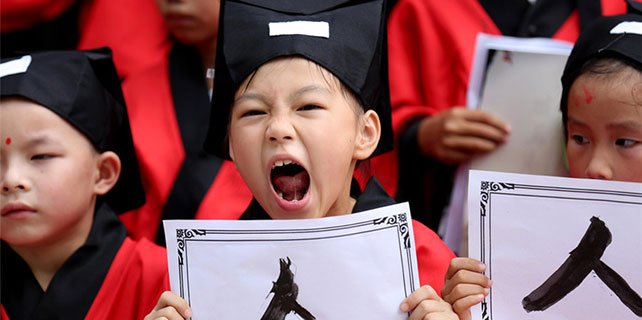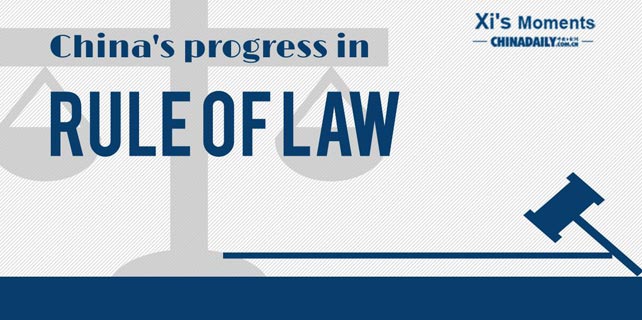Booming A-share market expected to throttle back
 |
|
An investor checks stock information on his mobile phone in front of an electronic board showing stock information at a brokerage house in Beijing.[Photo/Agencies] |
The A-share market in the Chinese mainland is expected to pull back in the fourth quarter of this year after growth momentum peaked in the first half of the year, UBS Securities said.
The investment firm bet on reform-related sectors, including State-owned enterprises (SOEs), flagship businesses in heavy industries and green stocks that align with the country's structural reforms.
Bolstered by strong economic fundamentals, the mainland's blue-chip CSI 300 Index has risen from a level slightly above 3,300 in May to 3829.87 at the close of trade on Thursday.
The 3,341 listed companies on the two major exchanges in Shanghai and Shenzhen reported combined revenue of 18.12 trillion yuan ($2.75 trillion), up 24.1 percent year-on-year, according to financial data provider eastmoney.com.
Despite slowing investment, especially in real-estate, UBS Securities chief China strategist Gao Ting said strong growth in exports and improved domestic performance have sent the A-share market to new highs in the first eight months of the year.
The National Bureau of Statistics said export values rose 11.3 percent in June, a significant recovery from the 6.1 percent decline in December last year. Retail sales of consumer goods rose 10.4 percent in July.
Looking ahead, UBS is less sanguine about prospects as improvement in economic fundamentals was well priced in during the first three quarters of the year.
The investment bank forecast the CSI 300 Index would stand at 3,750 at the end of this year. The high growth rate of corporate earnings is also expected to moderate. UBS predicts earnings of listed companies will grow a mild 5 percent in the fourth quarter and maintains a full-year growth prediction of 12 percent.
Investor preferences will shift from blue chips to reform-related stocks, Gao noted. UBS also stated the government's advocacy of SOEs' mixed-ownership reform, trimming of overcapacity in heavy industry and incremental efforts in environment protection are making related stocks new investment hot spots.
Earlier last month, China United Network Communication Group Ltd, the country's second-largest mobile network operator, announced a mixed-ownership reform plan. Mainland internet giants Alibaba Group Holding Ltd, Baidu Inc, Tencent Holdings Ltd and JD.com Inc will take stakes in the Hong Kong listed SOE.
"The mixed ownership reform of China Unicom is a good start and rolling out the blueprint for other SOEs. I think the reform would expedite and investors will have increasing interests in SOEs experimenting with such reforms," Gao said.
In terms of the outlook for the renminbi, Gao thinks the recent wave of appreciation is mainly due to the weakening of the US dollar rather than the strong momentum of the yuan. The yuan strengthened and breached the psychologically important 6.60 per dollar level at the end of last month-the first time at that level since June last year.
"The introduction of countercyclical factor in exchange-rate reform has set the yuan against a basket of major currencies. We estimate the exchange rate of the yuan against the US dollar will remain below 6.80 this year," Gao said.









